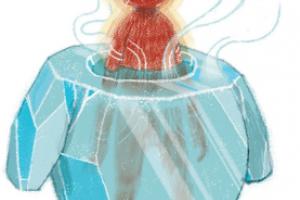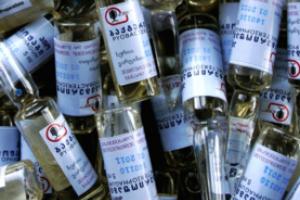Hints of Progress in the Ebola Fight
Scientific American
 There is no doubt that an unhealthy diet and sedentary lifestyle are the two chief drivers of the obesity epidemic, but many researchers are confident that they will eventually hit on specific brown fat–based treatments, although most admit that such interventions most likely are 10 years away at least.
There is no doubt that an unhealthy diet and sedentary lifestyle are the two chief drivers of the obesity epidemic, but many researchers are confident that they will eventually hit on specific brown fat–based treatments, although most admit that such interventions most likely are 10 years away at least.
 Different music encourages different frames of mind. That music can move us is no surprise; it's the point of the art form, after all. What's new here is the manner in which the researchers have quantified in fine-grained detail the cognitive ramifications of unpacked melodic compounds. This investigation of music's building blocks may be more relevant than you suppose.
Different music encourages different frames of mind. That music can move us is no surprise; it's the point of the art form, after all. What's new here is the manner in which the researchers have quantified in fine-grained detail the cognitive ramifications of unpacked melodic compounds. This investigation of music's building blocks may be more relevant than you suppose.
 Denied access to some of the best antibiotics developed in the West the Soviet Union invested heavily in the use of bacteriophages — viruses that kill bacteria — to treat infections. Now, faced with the looming spectre of antibiotic resistance, Western researchers and governments are giving phages a serious look. Pharmaceutical companies remain reluctant to get on board because phage therapy, nearly a century old, would be difficult claim intellectual property.
Denied access to some of the best antibiotics developed in the West the Soviet Union invested heavily in the use of bacteriophages — viruses that kill bacteria — to treat infections. Now, faced with the looming spectre of antibiotic resistance, Western researchers and governments are giving phages a serious look. Pharmaceutical companies remain reluctant to get on board because phage therapy, nearly a century old, would be difficult claim intellectual property.
Spread the word